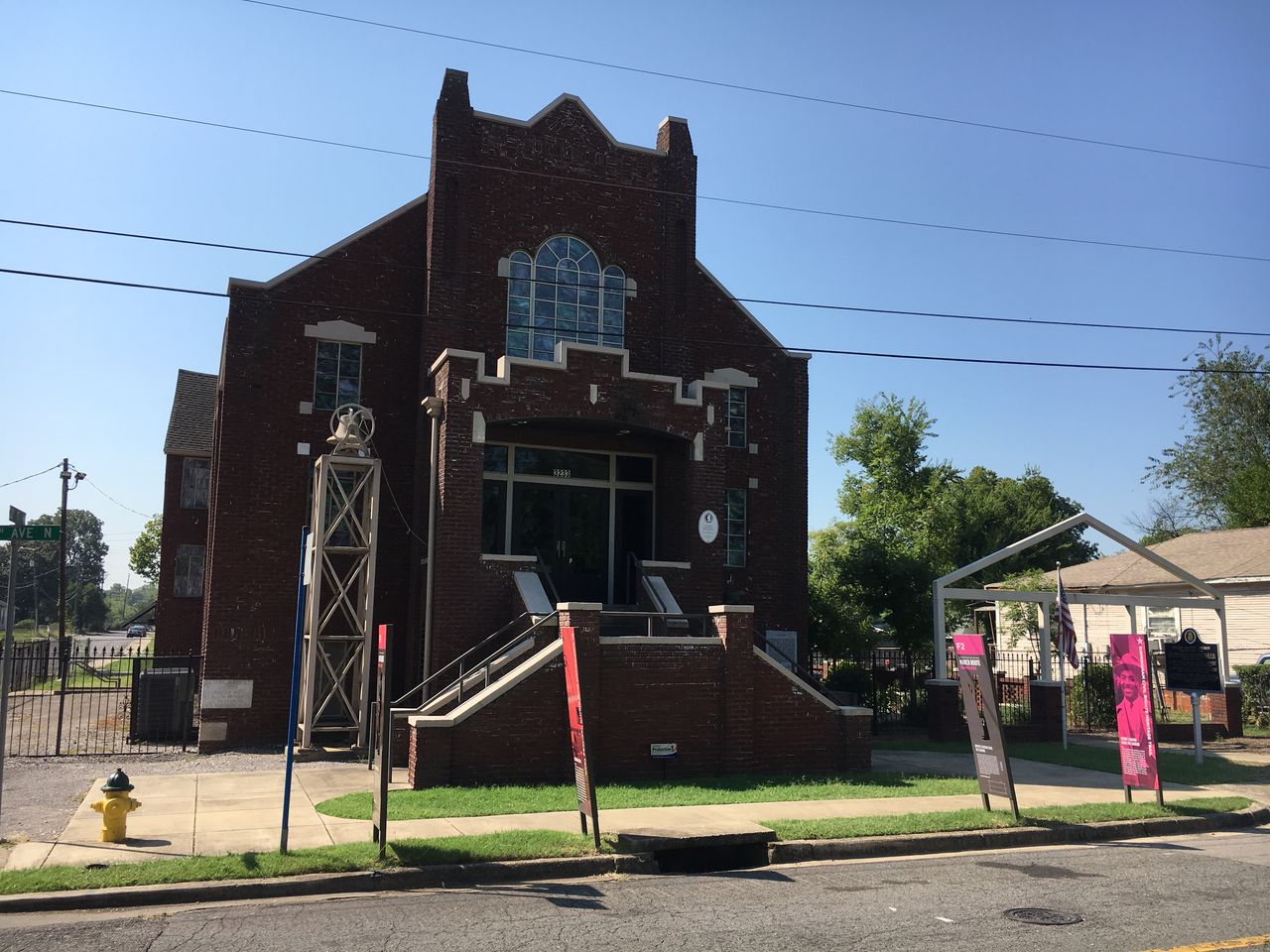Birminghamâs Bethel Baptist fights to preserve forgotten civil rights stories
Matthew Hicks grew up attending predominantly white schools in Birmingham. He said his school’s curriculum did not properly teach African American history. Instead, he turned to Black family members who lived through the civil rights movement to learn more.
This week, as Birmingham honored the 60th anniversary of the16th Street Baptist Church bombing, the church hosted a conference, “There IS A Balm in Gilead: Healing from the Events of 1963.” This event brought together teachers, preservationists and activists to acknowledge the harm done to those who lived through the civil rights movement.
“The stories and the narratives that have been told have been told from a perspective of someone that wasn’t afflicted, so we want to make sure that it’s told right,” said Victor Jordan, who works on the church’s media team. He said he wants youth to learn more about the history of American race relations. He fears this history may be forgotten or erased if it is not preserved.
In the 1950s and 1960s, Bethel, a Black church, served as headquarters for the Alabama Christian Movement for Human Rights. Its pastor, the legendary Fred Shuttlesworth, was the organization’s president. The church was a site for many mass meetings that empowered people across the country to fight against racism. The church was bombed three times. It recently received a $750,000 preservation grant.
Bethel stands as a representation of the tenacity of the activists who fought for civil rights through religious faith and empowerment.
Martha Bouyer, executive director of the Historic Bethel Baptist Church Community Restoration Fund, created the conference as a space for healing for survivors.
Hicks, Bouyer’s nephew, said she taught him about the horrors of slavery and Jim Crow. He saw how traumatic these experiences were to his older family members who personally experienced the movement.
“The youth, the next generation, if they’re not being taught essential pillars of their own history, Black, white, Hispanic, Asian, they’re not going to pursue a future that honors the past or corrects what was done wrong. They’ll just perpetuate it,” Hicks said.
Hicks attended Hewitt-Trussville High School, where someone told him that Black history was irrelevant. He said many historical events were taught incorrectly and discussions about race were often contentious.
Social studies teacher Jeremy Brown teaches a class about holocausts and genocides at Oakman High School in Walker County. He said when he was growing up, the Holocaust and American civil rights movement were not discussed much.
Brown said he was inspired the first time he visited Bethel Baptist Church. Now, he collects personal narratives from those who experienced the events firsthand.
“If I can connect a person’s story to the students, they realize that this wasn’t just an event, these are people,” Brown said. “I don’t want to just glance over it. I want to be able to teach them and do justice to the people that were murdered, to the people that were activists and to the people that were involved.”
Alabama is one of many states where state officials have restricted “divisive” discussions in the classroom, leading to some reports of a stifling of Black history and civil rights history.
To combat the erasure of African American history and amplify the stories of survivors of the civil rights movement, the Historic Bethel Baptist Church has been applying to partner with the International Council for Monuments and Sites for eight years. Bethel hopes that if it can work with the international nonprofit, which protects cultural heritage sites, the church’s building and history will be preserved forever.
Bethel has partnered with teachers throughout the city to get students to seek out the hidden figures and untold stories of the civil rights movement in their own communities.
Jordan said the church is also creating a seven-part documentary series to preserve this history, to be released this time next year. They are currently collecting video clips from pastors, teachers and students telling the many stories of the civil rights movement.
Elizabeth Silkes, executive director of the International Coalition of Sites of Consciousness, said local preservation efforts help communities heal and seek reconciliation and reparations.
“Reparations start with a full, honest, humble acknowledgment, and that has never happened. The state of Alabama has not done that. That’s the first step,” Silkes said.
“This will help move healing forward. We can’t leapfrog over reparations and accountability right to healing because that places the burden on the victims. It also doesn’t prevent these things from happening in the future.”
See more from AL.com:
Ketanji Brown Jackson speaks at 16th Street service, honors 4 little girls.
5 places in Birmingham to learn more about civil rights history.
16th Street Baptist Church is celebrating its 150th anniversary.
Birmingham Children’s Crusade foot soldiers are still fighting for equity.
First Black students attended Birmingham, Mobile, Huntsville public schools 60 years ago.
